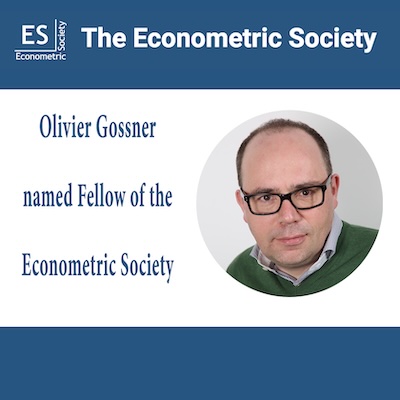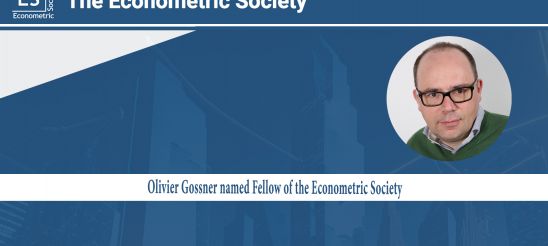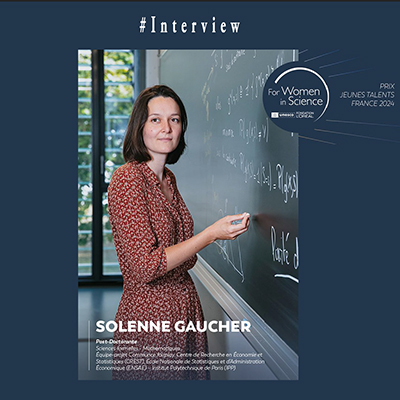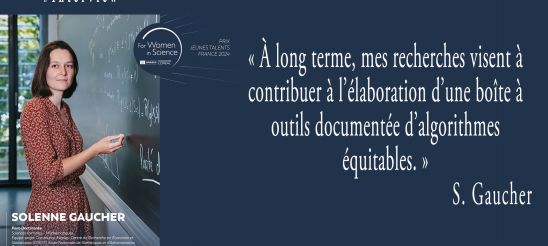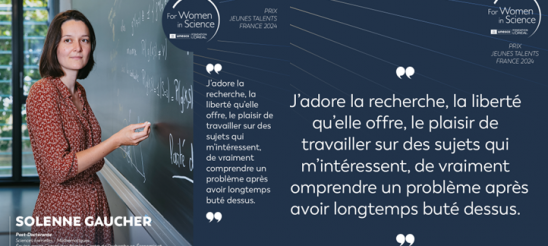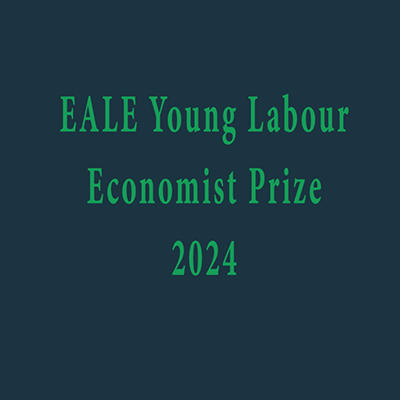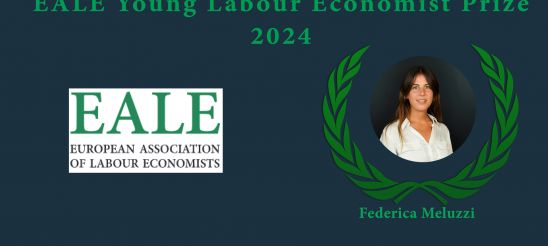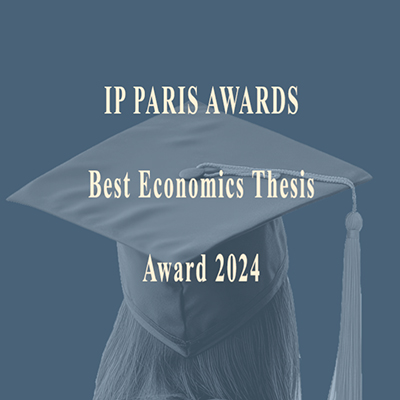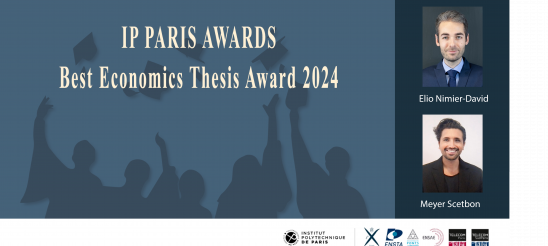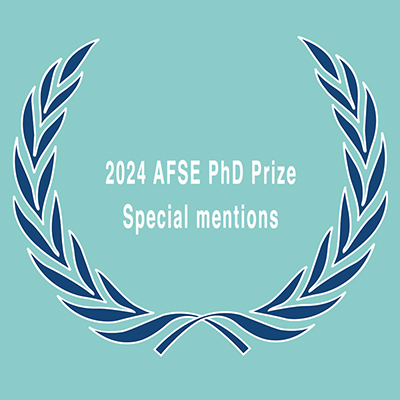Olivier Gossner: A Leading Specialist in Game Theory

Olivier Gossner is a prominent scholar at the intersection of economics and mathematics, renowned for his expertise in game theory. His research focuses on repeated games, the strategic use of information, and bounded rationality, exploring how individuals and institutions make decisions under uncertainty.
In his recent work, Gossner has introduced innovative models of strategic reasoning and proposed a significant reform to the Solvency II regulation, advocating for a reallocation of insurance capital towards the productive economy. His contributions aim to reshape how financial systems can better support economic growth.
Gossner holds multiple prestigious titles, including Fellow of the Game Theory Society, where he also serves as the Vice President for Communications, and now, Fellow of the Econometric Society. In recognition of his groundbreaking research, he was awarded an ERC advanced grant from the European Commission for his SInfoNiA project, which further advanced strategic information theory in economics.
Overview of The Econometric Society
Founded in 1930, the Econometric Society is one of the most prestigious academic societies in the world, bringing together leading economists and statisticians. Its mission is to advance economic theory in its relation to statistics and mathematics. The Society is known for its rigorous standards, and membership includes many of the most influential thinkers in economics over the past century.
The Econometric Society organizes major conferences around the world and publishes three of the field’s top journals: Econometrica, Quantitative Economics, and Theoretical Economics. Its influence extends across academic circles and into the policy-making world, where insights from its members shape major economic decisions globally.
What It Means to Be a Fellow of the Econometric Society
Becoming a Fellow of the Econometric Society is one of the highest honors in the field of economics. Each year, the Society recognizes a select group of economists whose research has made a profound impact on the field. The nomination process is highly competitive, and Fellows are selected based on their body of work, their contributions to advancing economic knowledge, and their influence on the academic community.
For Olivier Gossner, this fellowship represents a crowning achievement in a career already full of significant milestones. It places him in a distinguished group of scholars who have shaped modern economic theory and practice, and it recognizes his contributions to game theory and decision-making processes.
CREST and The Econometric Society
CREST (Center for Research in Economics and Statistics) maintains a significant relationship with the Econometric Society, with its researchers contributing to some of the field’s most prestigious journals. CREST researchers have published 8 papers in Econometrica, including key works like “Consistent Pseudo-Maximum Likelihood Estimator and Group Transformation” by G. Gourieroux, A. Monfort, and J.M. Zakoian, as well as Yves Le Yaouanq’s research, “Dual-self Representations of Ambiguity Preferences.”
In Quantitative Economics, CREST has published 5 papers, with notable studies such as “The Provision of Wage Incentives: A Structural Estimation Using Contracts Variation” by D’Haultfoeuille and Février, and “Inequality and Earnings Dynamics in France: National Policies and Local Consequences” by F. Kramarz, E. Nimier-David, and T. Delemotte.
The lab’s contributions extend to Theoretical Economics as well, with Olivier Loisel’s work on “The Implementation of Stabilization Policy” and Kikuchi and Koriyama’s research on “The Winner-Take-All Dilemma.”
CREST’s consistent publications in these prestigious journals reflect its prominent role in advancing economic research and theory on a global scale.
Olivier Gossner Named Fellow of the Econometric Society
Olivier Gossner: A Leading Specialist in Game Theory

Olivier Gossner is a prominent scholar at the intersection of economics and mathematics, renowned for his expertise in game theory. His research focuses on repeated games, the strategic use of information, and bounded rationality, exploring how individuals and institutions make decisions under uncertainty.
In his recent work, Gossner has introduced innovative models of strategic reasoning and proposed a significant reform to the Solvency II regulation, advocating for a reallocation of insurance capital towards the productive economy. His contributions aim to reshape how financial systems can better support economic growth.
Gossner holds multiple prestigious titles, including Fellow of the Game Theory Society, where he also serves as the Vice President for Communications, and now, Fellow of the Econometric Society. In recognition of his groundbreaking research, he was awarded an ERC advanced grant from the European Commission for his SInfoNiA project, which further advanced strategic information theory in economics.
Overview of The Econometric Society
Founded in 1930, the Econometric Society is one of the most prestigious academic societies in the world, bringing together leading economists and statisticians. Its mission is to advance economic theory in its relation to statistics and mathematics. The Society is known for its rigorous standards, and membership includes many of the most influential thinkers in economics over the past century.
The Econometric Society organizes major conferences around the world and publishes three of the field’s top journals: Econometrica, Quantitative Economics, and Theoretical Economics. Its influence extends across academic circles and into the policy-making world, where insights from its members shape major economic decisions globally.
What It Means to Be a Fellow of the Econometric Society
Becoming a Fellow of the Econometric Society is one of the highest honors in the field of economics. Each year, the Society recognizes a select group of economists whose research has made a profound impact on the field. The nomination process is highly competitive, and Fellows are selected based on their body of work, their contributions to advancing economic knowledge, and their influence on the academic community.
For Olivier Gossner, this fellowship represents a crowning achievement in a career already full of significant milestones. It places him in a distinguished group of scholars who have shaped modern economic theory and practice, and it recognizes his contributions to game theory and decision-making processes.
CREST and The Econometric Society
CREST (Center for Research in Economics and Statistics) maintains a significant relationship with the Econometric Society, with its researchers contributing to some of the field’s most prestigious journals. CREST researchers have published 8 papers in Econometrica, including key works like “Consistent Pseudo-Maximum Likelihood Estimator and Group Transformation” by G. Gourieroux, A. Monfort, and J.M. Zakoian, as well as Yves Le Yaouanq’s research, “Dual-self Representations of Ambiguity Preferences.”
In Quantitative Economics, CREST has published 5 papers, with notable studies such as “The Provision of Wage Incentives: A Structural Estimation Using Contracts Variation” by D’Haultfoeuille and Février, and “Inequality and Earnings Dynamics in France: National Policies and Local Consequences” by F. Kramarz, E. Nimier-David, and T. Delemotte.
The lab’s contributions extend to Theoretical Economics as well, with Olivier Loisel’s work on “The Implementation of Stabilization Policy” and Kikuchi and Koriyama’s research on “The Winner-Take-All Dilemma.”
CREST’s consistent publications in these prestigious journals reflect its prominent role in advancing economic research and theory on a global scale.
Interview – Solenne Gaucher, lauréate 2024 du prix L’Oréal Unesco pour les femmes et la science
Solenne Gaucher, post-doctorante statisticienne, au CREST-GENES a récemment obtenu le prestigieux prix L’Oréal Unesco pour les femmes et la science. Elle s’intéresse principalement à l’apprentissage séquentiel et aux problèmes de décision séquentielle, ainsi qu’à l’apprentissage automatique équitable.
Au sein du CREST, Solenne travaille avec Vianney Perchet, chercheur en statistique et enseignant à l’ENSAE Paris sur le projet FairPlay, en partenariat avec l’INRIA.
Nous avons saisi l’occasion de ce prix pour en savoir un peu plus sur Solenne, son parcours et son travail au CREST.
Félicitations pour ce prix prestigieux ! Que représente pour vous le fait de recevoir le prix L’Oréal Unesco pour les femmes et la science ?
Je suis profondément honorée de recevoir ce prix, décerné par un jury aussi prestigieux. Au-delà de la reconnaissance de mes travaux, ce prix s’accompagne d’une responsabilité que je prends à cœur. En tant qu’ambassadrice de la Fondation L’Oréal-Unesco pour les Femmes et la Science, je souhaite soutenir activement sa mission : promouvoir une plus grande inclusion des femmes dans le domaine scientifique, qui est un enjeu fondamental pour l’égalité des genres.
A votre avis, quelles sont les raisons de la sous-représentation des femmes en science, et quel impact une meilleure représentativité pourrait-elle avoir ?
Le nombre de femmes dans les domaines scientifiques reste alarmant. En France, elles ne représentent que 29% des chercheurs en sciences, et cette proportion chute encore davantage dans des disciplines comme les mathématiques, où seulement 22% des enseignantes-chercheuses à l’université sont des femmes. Ces chiffres, bien qu’ils reflètent la faible présence des femmes dans les filières scientifiques, en sont également une des causes.
Je suis convaincue que le manque de modèles féminins visibles dans l’enseignement supérieur peut freiner les ambitions des étudiantes, les poussant à douter de leur légitimité. A cela s’ajoutent d’autres facteurs :
- Un soutien insuffisant de l’entourage pour s’engager dans des carrières scientifiques ;
- Un sentiment d’illégitimité dans un environnement perçu comme très masculin ;
- Une aversion plus marquée pour la compétition, qui peut éloigner certaines jeunes femmes de filières considérées comme élitistes.
Cette situation est préoccupante, car elle freine l’égalité des genres dans notre société. Les études scientifiques ouvrent les portes à des carrières parmi les plus prestigieuses et les mieux rémunérées. Pour y remédier, il est indispensable de mener des actions ciblées tout au long du parcours des jeunes femmes, dès la petite enfance, en luttant contre les stéréotypes de genre, et jusqu’aux études supérieures, en les conseillant sur leur orientation et en les encourageant activement à se tourner vers des carrières scientifiques.
Comment pensez-vous que ce prix influencera votre carrière et vos projets de recherche futurs ?
En tant que jeune chercheuse, ce prix apporte à la fois une reconnaissance et une visibilité précieuse à mes travaux. Plus matériellement, ce prix conséquent me donne une certaine indépendance financière, et me permettra notamment de financer un séjour de recherche à l’étranger, de voyager pour présenter mes travaux et nouer des collaborations avec des chercheurs de divers horizons. Ce prix ouvre donc de nouvelles perspectives pour mes projets de recherche.
Vous avez obtenu ce prix dans le cadre de votre travail sur l’équité algorithmique. Pouvez-vous nous présenter ces travaux ?
Mes travaux portent sur les enjeux d’équité dans les algorithmes d’apprentissage automatique, ou machine learning. Pour comprendre pourquoi ces algorithmes peuvent produire des réponses biaisées, il est essentiel de comprendre leur fonctionnement : ils apprennent à partir de larges jeux de données à repérer des relations entre différents éléments décrits par ces données. Par exemple, un logiciel de génération de texte associe certains mots à des contextes spécifiques et reproduit ces associations dans ses réponses.
Cependant, si les données d’entraînement contiennent des biais, les algorithmes risquent de les reproduire, voire de les accentuer. Par exemple, des journalistes de Reuters ont rapporté qu’un algorithmes de recrutement d’ingénieurs, entraîné sur des données historiques de recrutement, reproduisait les biais présents dans les données en discriminant les candidatures féminines. De tels cas illustrent un consensus croissant parmi les scientifiques : les algorithmes de machine learning, lorsqu’ils sont formés sur des données biaisées, peuvent perpétuer ou aggraver les discriminations déjà présentes.
Mes recherches visent à mesurer et prévenir les discriminations des algorithmes. La complexité du sujet dépasse son aspect purement mathématique : une décision juste dans un contexte peut sembler injuste dans un autre, ce qui nécessité de développer différentes approches complémentaires. A court terme, le souhaite étudier certains critères d’équité spécifiques, et en particulier comprendre les conséquences de ces contraintes, et comment les intégrer dans les algorithmes. A long terme, mes recherches visent à contribuer à l’élaboration d’un boîte à outils documentée d’algorithmes équitables. Celle-ci fournirait aux décideurs des méthodes pratiques pour mettre en œuvre tel ou tel critère tout en expliquant les conséquences et les effets néfastes potentiels de ces choix.
Pouvez-vous nous expliquer ce qui vous a motivé à explorer le domaine de l’équité dans les algorithmes d’intelligence artificielle ?
Ce domaine de recherche présente deux intérêts majeurs à mes yeux. D’une part, il permet de répondre à un problème ayant un impact sociétal significatif, où les mathématiciens et mathématiciennes ont un rôle clé à jouer. D’autre part, il s’agit d’un champ de recherche émergeant et particulièrement dynamique. De nombreuses questions fondamentales restent ouvertes, et ce domaine présente des défis mathématiques vraiment captivants.
Qu’est-ce qui vous a poussé à choisir une carrière de chercheuse en statistiques et en mathématiques appliquées ?
J’ai choisi de faire une carrière scientifique par passion pour les mathématiques. Je n’avais pas de métier précis en tête en commençant mes études, et pas d’autre but en tête que celui de continuer à pratiquer des sciences. Je ne visais pas un métier en particulier, mais je savais que ces études m’ouvraient de nombreuses portes. J’ai suivi, à chaque choix d’orientation, la voie qui me permettait de continuer à faire des mathématiques, qui me plaisaient particulièrement. J’ai donc assez naturellement fait un master de recherche, qui m’a conduit à faire une thèse.
J’aime particulièrement la liberté que le métier de chercheuse m’offre. En premier lieu, la liberté de travailler sur les problèmes qui m’intéressent, et de continuer à apprendre de nouvelles techniques, à découvrir de nouveaux sujets. Et, bien sûr, la liberté de choisir avec qui travailler. C’est aussi un métier qui procure un vrai plaisir intellectuel : celui de modéliser un problème réel en termes mathématiques, de réfléchir et de raisonner, de comprendre !
L’enseignement est également une partie de ce métier que je trouve vraiment gratifiante, car elle permet de mesurer immédiatement l’impact de son travail, à travers les progrès visibles de ses élèves.
Interview – Solenne Gaucher, lauréate 2024 du prix L’Oréal Unesco pour les femmes et la science
Solenne Gaucher, post-doctorante statisticienne, au CREST-GENES a récemment obtenu le prestigieux prix L’Oréal Unesco pour les femmes et la science. Elle s’intéresse principalement à l’apprentissage séquentiel et aux problèmes de décision séquentielle, ainsi qu’à l’apprentissage automatique équitable.
Au sein du CREST, Solenne travaille avec Vianney Perchet, chercheur en statistique et enseignant à l’ENSAE Paris sur le projet FairPlay, en partenariat avec l’INRIA.
Nous avons saisi l’occasion de ce prix pour en savoir un peu plus sur Solenne, son parcours et son travail au CREST.
Félicitations pour ce prix prestigieux ! Que représente pour vous le fait de recevoir le prix L’Oréal Unesco pour les femmes et la science ?
Je suis profondément honorée de recevoir ce prix, décerné par un jury aussi prestigieux. Au-delà de la reconnaissance de mes travaux, ce prix s’accompagne d’une responsabilité que je prends à cœur. En tant qu’ambassadrice de la Fondation L’Oréal-Unesco pour les Femmes et la Science, je souhaite soutenir activement sa mission : promouvoir une plus grande inclusion des femmes dans le domaine scientifique, qui est un enjeu fondamental pour l’égalité des genres.
A votre avis, quelles sont les raisons de la sous-représentation des femmes en science, et quel impact une meilleure représentativité pourrait-elle avoir ?
Le nombre de femmes dans les domaines scientifiques reste alarmant. En France, elles ne représentent que 29% des chercheurs en sciences, et cette proportion chute encore davantage dans des disciplines comme les mathématiques, où seulement 22% des enseignantes-chercheuses à l’université sont des femmes. Ces chiffres, bien qu’ils reflètent la faible présence des femmes dans les filières scientifiques, en sont également une des causes.
Je suis convaincue que le manque de modèles féminins visibles dans l’enseignement supérieur peut freiner les ambitions des étudiantes, les poussant à douter de leur légitimité. A cela s’ajoutent d’autres facteurs :
- Un soutien insuffisant de l’entourage pour s’engager dans des carrières scientifiques ;
- Un sentiment d’illégitimité dans un environnement perçu comme très masculin ;
- Une aversion plus marquée pour la compétition, qui peut éloigner certaines jeunes femmes de filières considérées comme élitistes.
Cette situation est préoccupante, car elle freine l’égalité des genres dans notre société. Les études scientifiques ouvrent les portes à des carrières parmi les plus prestigieuses et les mieux rémunérées. Pour y remédier, il est indispensable de mener des actions ciblées tout au long du parcours des jeunes femmes, dès la petite enfance, en luttant contre les stéréotypes de genre, et jusqu’aux études supérieures, en les conseillant sur leur orientation et en les encourageant activement à se tourner vers des carrières scientifiques.
Comment pensez-vous que ce prix influencera votre carrière et vos projets de recherche futurs ?
En tant que jeune chercheuse, ce prix apporte à la fois une reconnaissance et une visibilité précieuse à mes travaux. Plus matériellement, ce prix conséquent me donne une certaine indépendance financière, et me permettra notamment de financer un séjour de recherche à l’étranger, de voyager pour présenter mes travaux et nouer des collaborations avec des chercheurs de divers horizons. Ce prix ouvre donc de nouvelles perspectives pour mes projets de recherche.
Vous avez obtenu ce prix dans le cadre de votre travail sur l’équité algorithmique. Pouvez-vous nous présenter ces travaux ?
Mes travaux portent sur les enjeux d’équité dans les algorithmes d’apprentissage automatique, ou machine learning. Pour comprendre pourquoi ces algorithmes peuvent produire des réponses biaisées, il est essentiel de comprendre leur fonctionnement : ils apprennent à partir de larges jeux de données à repérer des relations entre différents éléments décrits par ces données. Par exemple, un logiciel de génération de texte associe certains mots à des contextes spécifiques et reproduit ces associations dans ses réponses.
Cependant, si les données d’entraînement contiennent des biais, les algorithmes risquent de les reproduire, voire de les accentuer. Par exemple, des journalistes de Reuters ont rapporté qu’un algorithmes de recrutement d’ingénieurs, entraîné sur des données historiques de recrutement, reproduisait les biais présents dans les données en discriminant les candidatures féminines. De tels cas illustrent un consensus croissant parmi les scientifiques : les algorithmes de machine learning, lorsqu’ils sont formés sur des données biaisées, peuvent perpétuer ou aggraver les discriminations déjà présentes.
Mes recherches visent à mesurer et prévenir les discriminations des algorithmes. La complexité du sujet dépasse son aspect purement mathématique : une décision juste dans un contexte peut sembler injuste dans un autre, ce qui nécessité de développer différentes approches complémentaires. A court terme, le souhaite étudier certains critères d’équité spécifiques, et en particulier comprendre les conséquences de ces contraintes, et comment les intégrer dans les algorithmes. A long terme, mes recherches visent à contribuer à l’élaboration d’un boîte à outils documentée d’algorithmes équitables. Celle-ci fournirait aux décideurs des méthodes pratiques pour mettre en œuvre tel ou tel critère tout en expliquant les conséquences et les effets néfastes potentiels de ces choix.
Pouvez-vous nous expliquer ce qui vous a motivé à explorer le domaine de l’équité dans les algorithmes d’intelligence artificielle ?
Ce domaine de recherche présente deux intérêts majeurs à mes yeux. D’une part, il permet de répondre à un problème ayant un impact sociétal significatif, où les mathématiciens et mathématiciennes ont un rôle clé à jouer. D’autre part, il s’agit d’un champ de recherche émergeant et particulièrement dynamique. De nombreuses questions fondamentales restent ouvertes, et ce domaine présente des défis mathématiques vraiment captivants.
Qu’est-ce qui vous a poussé à choisir une carrière de chercheuse en statistiques et en mathématiques appliquées ?
J’ai choisi de faire une carrière scientifique par passion pour les mathématiques. Je n’avais pas de métier précis en tête en commençant mes études, et pas d’autre but en tête que celui de continuer à pratiquer des sciences. Je ne visais pas un métier en particulier, mais je savais que ces études m’ouvraient de nombreuses portes. J’ai suivi, à chaque choix d’orientation, la voie qui me permettait de continuer à faire des mathématiques, qui me plaisaient particulièrement. J’ai donc assez naturellement fait un master de recherche, qui m’a conduit à faire une thèse.
J’aime particulièrement la liberté que le métier de chercheuse m’offre. En premier lieu, la liberté de travailler sur les problèmes qui m’intéressent, et de continuer à apprendre de nouvelles techniques, à découvrir de nouveaux sujets. Et, bien sûr, la liberté de choisir avec qui travailler. C’est aussi un métier qui procure un vrai plaisir intellectuel : celui de modéliser un problème réel en termes mathématiques, de réfléchir et de raisonner, de comprendre !
L’enseignement est également une partie de ce métier que je trouve vraiment gratifiante, car elle permet de mesurer immédiatement l’impact de son travail, à travers les progrès visibles de ses élèves.
Solenne Gaucher named one of the L’Oréal-UNESCO 2024 France Young Talents for Women in Science
Congratulations to Solenne Gaucher, Ph.D. for winning the 2024 Fondation L’Oréal – UNESCO #ForWomenInScience France Young Talent Award!
Solenne Gaucher, Ph.D., is a postdoctoral researcher at CREST-GENES – Groupe des Écoles Nationales d’Économie et Statistique-ENSAE Paris where she dedicated her work to fair marchine learning algorithms on the FairPlay project with Vianney Perchet and Inria.
We are proud that her dedication and the excellence of her research have been recognized by Académie des sciences, Fondation L’Oréal and UNESCO, which empowers women scientists and inspires the next generation.
Read more on the official press release: https://www.fondationloreal.com/sites/default/files/2024-10/cp_prix_jeunes_talents_2024_l_oreal-unesco_for_women_in_science_vdef.pdf
Federica Meluzzi, 2024 EALE Young Labor Economist Prize winner
CREST is proud to announce that Federica Meluzzi, a PhD candidate in Economics at CREST-GENES, has been awarded the 2024 EALE Young Labor Economist Prize.
Federica Meluzzi, PhD candidate at CREST specialized in labor economics.

Federica’s work is in labor economics at the intersection with public economics and education. Specifically, her research is on gender differences in the labor market, with a focus on how gender norms are transformed, either by public policies or with the social environment.
Federica will be going on the academic job market 2024 – 2025.
The European Association of Labor Economists and the EALE Young Labor Economist Prize.
The European Association of Labor Economists (EALE) was founded in 1989 in order to promote the advancement of knowledge in the field of labor economics in Europe and elsewhere.
The EALE Young Labor Economist Prize is awarded by the EALE to recognize outstanding research in labor economics. It is awarded to a young economist, who has authored an excellent paper presented at the annuel EALE conference. The prize aims to highlight innovative contributions to the field and support the development of young researchers in labor economics. It is considered a prestigious honor within the academic community.
For the 2024 EALE Conference, Federica presented her paper “The College Melting Pot: Peers, Culture and Women’s Job Search”.

“The College Melting Pot: Peers, Culture and Women’s Job Search”.
Today, there is strong consensus on the importance of gender norms in explaining the residual gender gaps in the labor market. However, our understanding of the drivers of gender norms, and their implications for preferences, remain lacking. Her paper, “The College Melting Pot: Peers, Culture and Women’s Job Search”, contributes to filling this gap by providing novel large-scale evidence on the effects of the social environment – specifically college classmates – as a driver of women’s early-career labor market decisions.
Using unique administrative and survey data covering all college students in Italy, this study leverages cross-cohort idiosyncratic variation in the geographical origins of peers within Master’s programs. The key finding is tat exposure to female classmates from areas with egalitarian gender norms significantly increases women’s labor supply, primarily through increased uptake of full-time jobs. The estimated peer effects are substantial, accounting for more than a third of the gender earnings gap.
Drawing on large-scale data on students’ job-search preferences and newly collected data on their beliefs, Federica shed light two main drivers of peer influence: (i) shifts in preferences for non-pecuniary job attributes, and (ii) social learning, particularly on the characteristics of the job offer distribution.
Other works.
Federica’s other works are on how the design of parental leave benefits affects households’ decisions to share parental leave, on the role of firlms in shaping the stickiness of gender norms, on the effects of pay transparency on within-firm pay premia, and on gender differences in the responsiveness to UI benefits.
Federica Meluzzi, winner of the 2024 EALE Young Labor Economist Prize
CREST is proud to announce that Federica Meluzzi, a PhD candidate in Economics at CREST-GENES, has been awarded the 2024 EALE Young Labor Economist Prize.
Federica Meluzzi, PhD candidate at CREST specialized in labor economics.

Federica’s work is in labor economics at the intersection with public economics and education. Specifically, her research is on gender differences in the labor market, with a focus on how gender norms are transformed, either by public policies or with the social environment.
Federica will be going on the academic job market 2024 – 2025.
The European Association of Labor Economists and the EALE Young Labor Economist Prize.
The European Association of Labor Economists (EALE) was founded in 1989 in order to promote the advancement of knowledge in the field of labor economics in Europe and elsewhere.
The EALE Young Labor Economist Prize is awarded by the EALE to recognize outstanding research in labor economics. It is awarded to a young economist, who has authored an excellent paper presented at the annuel EALE conference. The prize aims to highlight innovative contributions to the field and support the development of young researchers in labor economics. It is considered a prestigious honor within the academic community.
For the 2024 EALE Conference, Federica presented her paper “The College Melting Pot: Peers, Culture and Women’s Job Search”.

“The College Melting Pot: Peers, Culture and Women’s Job Search”.
Today, there is strong consensus on the importance of gender norms in explaining the residual gender gaps in the labor market. However, our understanding of the drivers of gender norms, and their implications for preferences, remain lacking. Her paper, “The College Melting Pot: Peers, Culture and Women’s Job Search”, contributes to filling this gap by providing novel large-scale evidence on the effects of the social environment – specifically college classmates – as a driver of women’s early-career labor market decisions.
Using unique administrative and survey data covering all college students in Italy, this study leverages cross-cohort idiosyncratic variation in the geographical origins of peers within Master’s programs. The key finding is tat exposure to female classmates from areas with egalitarian gender norms significantly increases women’s labor supply, primarily through increased uptake of full-time jobs. The estimated peer effects are substantial, accounting for more than a third of the gender earnings gap.
Drawing on large-scale data on students’ job-search preferences and newly collected data on their beliefs, Federica shed light two main drivers of peer influence: (i) shifts in preferences for non-pecuniary job attributes, and (ii) social learning, particularly on the characteristics of the job offer distribution.
Other works.
Federica’s other works are on how the design of parental leave benefits affects households’ decisions to share parental leave, on the role of firlms in shaping the stickiness of gender norms, on the effects of pay transparency on within-firm pay premia, and on gender differences in the responsiveness to UI benefits.
Elio Nimier-David & Meyer Scetbon: 2024 IP Paris Thesis Prize in economics
Elio Nimier-David & Meyer Scetbon: 2024 IP Paris Thesis Prize in economics
2024 AFSE PhD Prize Special mentions
Congratulations to Léa BOU SLEIMAN who received the special mention of the AFSE 2024 Prize for her thesis “Essays in Urban and Environmental Economics”.

